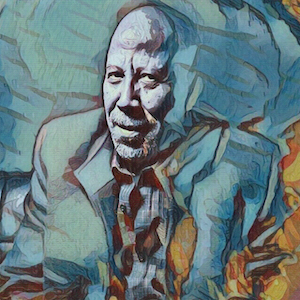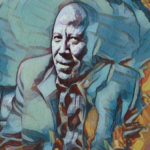

When delving into Ethiopian music, Hailu Mergia’s name rightfully appears at the forefront. Over three decades, he established himself as a solo artist and with bands like the Walias Band, releasing numerous cassettes spanning from synth-driven Afro-funk to iconic Ethio-jazz compositions.
Born in 1946 in the Shewa Province of the Ethiopian Empire, Hailu Mergia relocated to Addis Ababa at the age of 10. Growing up with traditional Oromo, Amhara, and Tigrinya melodies, he taught himself the accordion at 14. His mastery of the accordion and keyboard, along with his ability to transform folk songs into contemporary, funkier melodies, defined his impact on Ethiopian popular music.
In the 1970s, Hailu Mergia served as the keyboardist for the Walias Band, a jazz and funk ensemble renowned for its hard polyrhythmic funk sound influenced by Western artists like King Curtis, Junior Walker, and Maceo Parker. The era posed challenges for working bands due to governmental restrictions on Addis Ababa’s nightlife under Mengistu’s Derg government. Despite the difficulties, music continued to be recorded, with cassettes being the prevalent release format for their ease of duplication and distribution. During this period, Walias Band held a 10-year residency at Addis’s Hilton hotel.
Censorship under the Derg dictatorship posed challenges for musicians, leading Hailu to focus on creating instrumentals to bypass restrictions. He highlighted the dilemma, stating, “When you sing or write lyrics, you have to support the government, and if you don’t do that, then you have a problem.” In the ‘golden age’ of Addis’ music scene, dominated by vocal-led compositions, only three instrumental albums were released, including Hailu’s notable work with the Walias Band, Tche Belew (1977). As a side project, he collaborated with the Dhalak Band, resulting in the cassette-only release Wede Harer Guzo (1978), an improvisation-rich, jazz-infused album.
The 1980s marked a turning point when Hailu and several band members opted to stay in the United States during a tour, effectively concluding the Walias Band’s career. Hailu, however, continued his musical journey in the U.S., recording the album Hailu Mergia & His Classical Instrument in 1985 while playing with the Zula Band. After a hiatus from performing since 1991, he pursued other endeavors, operating a restaurant and later working as a taxi driver, primarily around Washington DC’s Dulles Airport since 1998. Despite these shifts, he remained dedicated to music, practicing in his car after dropping off customers.
In 2013, Hailu Mergia & His Classical Instrument was re-released on the Awesome Tapes From Africa label, discovered by the label’s owner in a cassette bin. This was followed by the 2016 re-release of Wede Harer Guzo, which became one of his most popular works with over 5 million streams. In 2018, he released his first new record in over two decades, Lala Belu, and in 2020, he released a full-band album, Yene Mircha.
Leave a Reply
You must be logged in to post a comment.